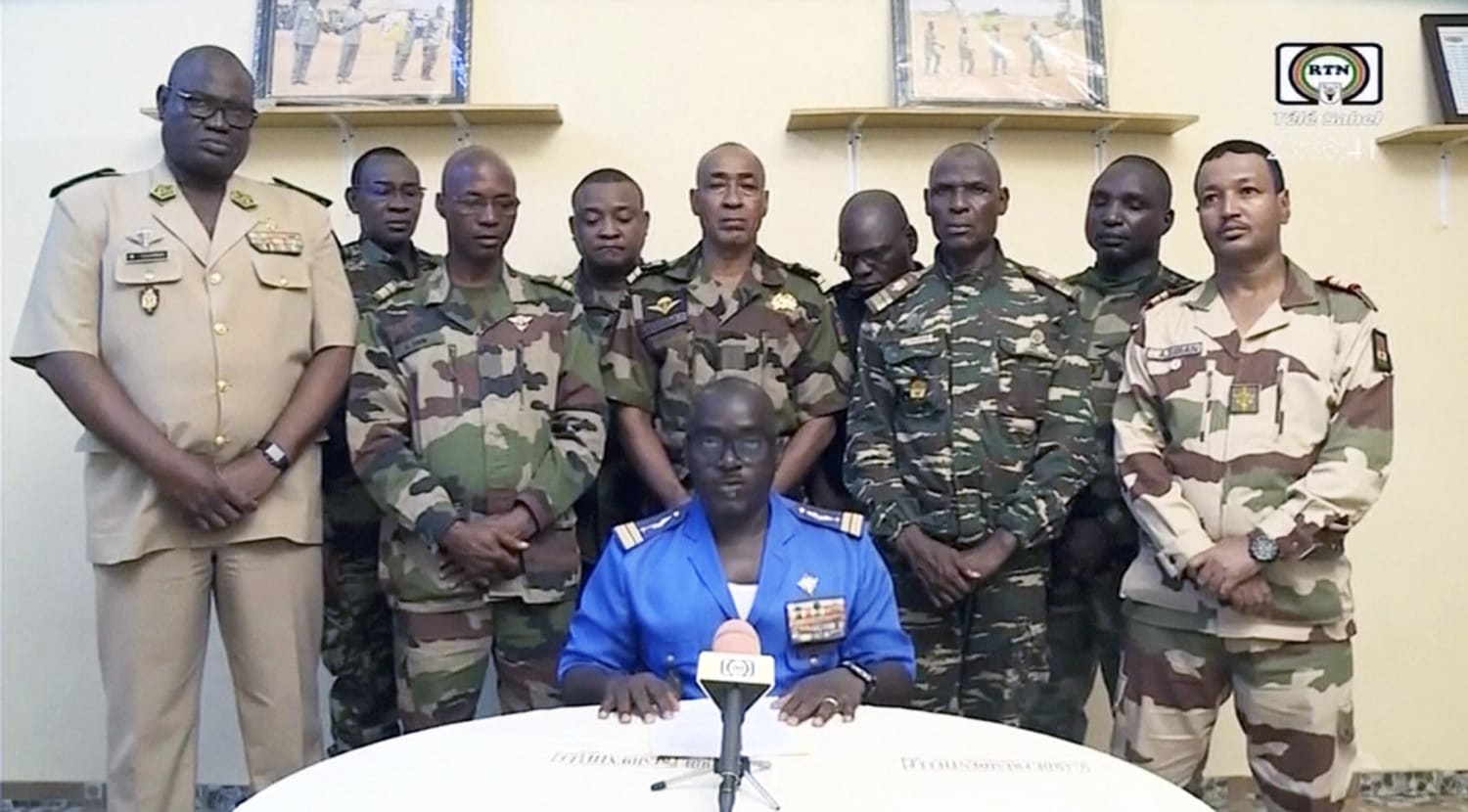
Threats to Bazoum’s leadership would undermine the West’s efforts to stabilize Africa’s Sahel region, which has been overrun with coups in recent years. Mali and Burkina Faso have had four coups since 2020, and both are being overrun by extremists linked to al-Qaida and the Islamic State group. U.S.
U.S. Secretary of State Antony Blinken visited Niger in March, seeking to strengthen ties with a country where extremists have carried out attacks on civilians and military personnel but the overall security situation was not as dire as in neighboring nations.
During a stop in New Zealand on Thursday, Blinken repeated the U.S. condemnation of the mutiny against Niger’s president and said his team was in close contact with officials in France and Africa.
Blinken added that he had spoken with Bazoum on Wednesday, saying that he “made clear that we strongly support him as the democratically elected president of the country.”
Ulf Laessing, head of the Sahel program at the Konrad Adenauer Foundation, said the mutiny was a “nightmare scenario for Western powers who had betted on Bazoum and Niger as new security anchor for the Sahel.”
“It remains to be seen whether this is the last word. Parts of the army are probably still loyal to Bazoum. They benefited much from equipment and training as part of foreign military assistance,” Laessing said.
Before the announcement, hundreds of people took to the streets of the capital, Niamey, and chanted “No coup d’etat” while marching in support of the president. Multiple rounds of gunfire that appeared to come from the presidential palace dispersed the demonstrators and sent people scrambling for cover, according to an Associated Press reporter at the scene.
“We are here to show the people that we are not happy about this movement going on, just to show these military people that they can’t just take the power like this,” protester Mohammed Sidi said. “We are a democratic country, we support democracy and we don’t need this kind of movement.”
The international community strongly condemned the attempted seizure of power.
U.N. Secretary-General Antonio Guterres spoke to Bazoum on Wednesday afternoon and “expressed his full support and solidarity,“ the U.N. spokesperson tweeted.
Earlier, Guterres condemned any effort to seize power by force ”in the strongest terms” and called on “all actors involved to exercise restraint and to ensure the protection of constitutional order,” spokesman Stephane Dujarric said.
The governments of France and the United States also voiced concern and urged the participating guardsmen to change course. Bazoum’s administration has made Niger a key Western partner in the fight against Islamist extremism in Africa’s Sahel region.
“We strongly condemn any effort to detain or subvert the functioning of Niger’s democratically elected government, led by President Bazoum,” White House National Security Adviser Jake Sullivan said. “We specifically urge elements of the presidential guard to release President Bazoum from detention and refrain from violence.”
Nigerian President Bola Tinubu, who was selected this month as the ECOWAS Commission’s chairman, said the regional bloc’s leadership would resist any attempt to unseat Niger’s government.
“It should be quite clear to all players in the Republic of Niger that the leadership of the ECOWAS region and all lovers of democracy around the world will not tolerate any situation that incapacitates the democratically elected government of the country,” Tinubu said in a statement he issued in Abuja. “We will do everything within our powers to ensure democracy is firmly planted, nurtured, well rooted and thrives in our region.”
اكتشاف المزيد من ينبوع المعرفة
اشترك للحصول على أحدث التدوينات المرسلة إلى بريدك الإلكتروني.
